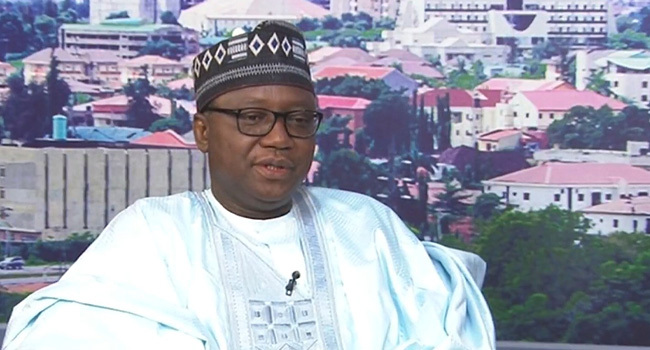Grace Omachoko
The Federal Government has declared its intention to release a six-month accumulated report of revenue since the removal of fuel subsidy.
Chairman of Revenue Mobilisation Allocation and Fiscal Commission (RMAFC), Mohammed Shehu, disclosed this, stating that the report will include the amount disbursed so far to the three-tiers of the government, how much was collected and shared as well as how much was deducted.
According to him, the report has already been forwarded to the president for approval.
In his words, “We are coming out with a six- month report of what has been generated in the last six months for this year. what has been disbursed, to all the three tiers of governments. We have officially forwarded it to the leadership the president and the stakeholders. But by next week you are going to have those figures. How much was collected, how much was shared, how much was deducted, the cost of collection by the revenue generating agencies; any outstanding liabilities and some other things,” he said.
While rating the performance of some revenue-generating agencies, Shehu pointed that while some agencies did not meet their target, others surpassed theirs.
Specifically, he listed Federal Inland Revenue Service (FIRS) and Nigeria Customs Service (NCS) as agencies that performed well.
“Obviously, there are agencies that did very well especially the Federal Inland Revenue Service (FIRS). They actually exceeded their target for this year. One agency that didn’t do very well is Nigerian Upstream Petroleum Regulatory Commission (NUPR NURPC failed to meet its targetC). They were hovering around 43 per cent or 53 per cent.
“Of course, the solid mineral sector that is still at an infancy stage in terms of the amount of money that comes into the federation account. Obviously, it’s not as much as expected. Customs performed well but they did not do as well as FIRS,” he added.
Shehu further deposed that not only that the government was subsidising for Nigerians, it was equally subsidising for the entire West African sub-region.
“The nation can no longer afford that kind of money to be given in and out. It’s going to run us into bankruptcy. It’s not only in Nigeria that we have been subsidising but the entire West African sub-region.
“And if you look at the consumption rate it has been brought down by about 10 per cent. Over the years, about 30 per cent to 40 per cent of whatever is produced from Nigerian National Petroleum Corporation (NNPC) is taken outside to Cameroon, Niger and Benin.
“So, people were making money, the subsidy that is removed will free some money for various projects in Nigeria. One of the greatest problems of Nigeria is infrastructure deficit– no good roads, rail lines, schools, hospitals. After the removal of subsidy, there would be more money for sharing not only to local governments and states but even to the Federal Government. That will allow the system to do more projects. So, in terms of revenue generation, obviously there will be more revenues to be shared among the three tiers of governments.”

